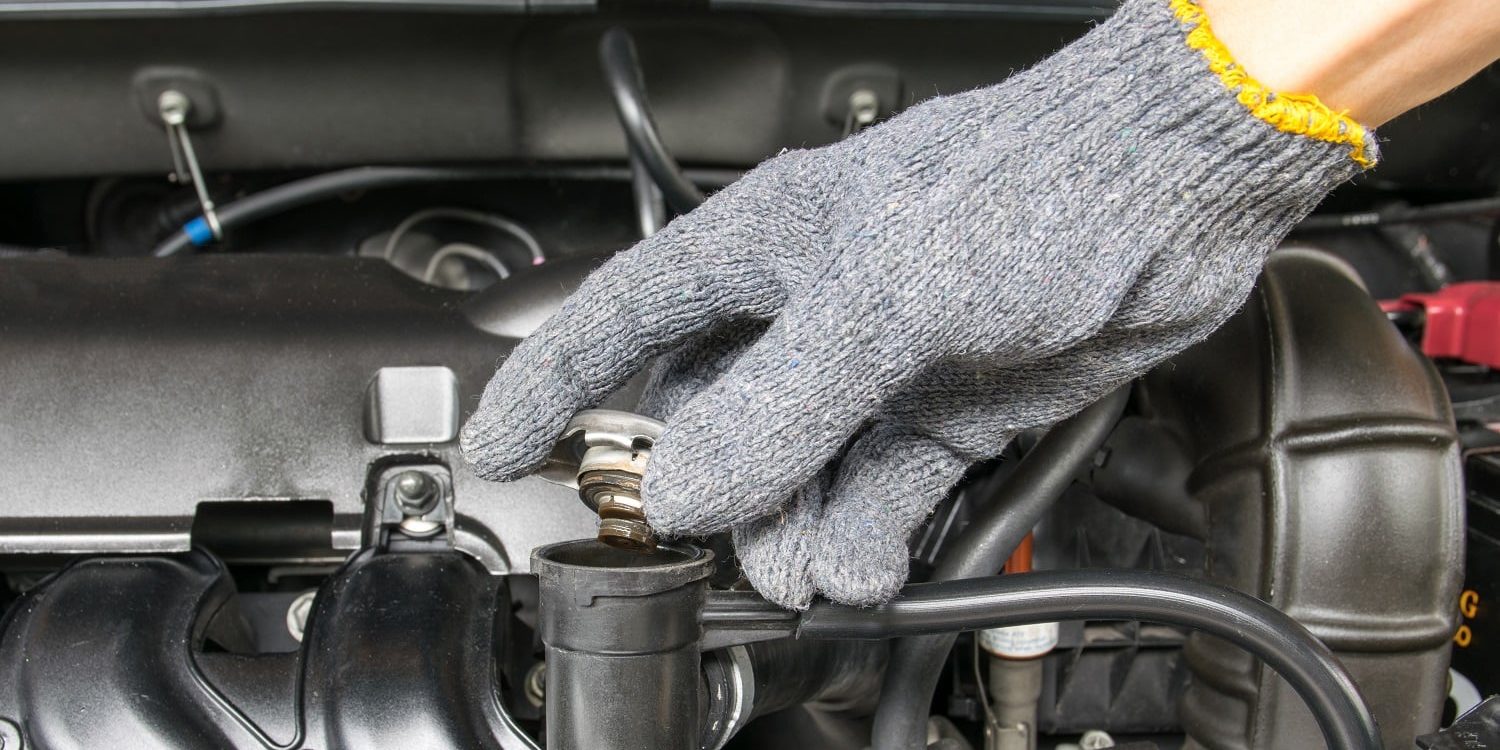Vehicles generate a lot of heat every time they run. In fact, the normal operating temperature of a car engine is between 90 to 102 degrees Celsius.[1] Of course, your engine relies on a properly working cooling system to maintain a safe temperature.
To achieve this, coolant – usually a mixture of water and ethylene glycol (aka antifreeze) – is pumped through the engine to absorb the heat. Once the water heats up, it’s circulated back into the radiator, where the heat is transferred to the cooling fins and radiated throughout the air. As a result, the water and antifreeze mixture is cooled, and the cycle eventually repeats.
What if the coolant system fails? Very quickly, heat build-ups and exceed safe levels – causing damage to not just the engine, but also the surrounding parts. In many cases, you’re temporarily left without a car, and an expensive repair bill.
How long does the average radiator last for?
Well-maintained, older radiators made out of copper or brass can last the lifetime of the vehicle. These days, most radiators are made out of aluminium or plastic as they are lighter and more fuel-efficient.
Modern radiators can last for anywhere from six to 10 years or longer. The most common cause of damage is when plastic expands and contracts as the radiator cools down and heats up. As a result, cracks can form, although this rarely happens in the first decade of the radiator’s life.
Lower quality materials and poor workmanship can increase the risk of a radiator failing sooner.
How to increase the lifespan of your radiator
Routine maintenance is the key to a healthy, happy, and long lasting radiator.
Many of the tasks required to maintain your radiator can be done yourself. You just need a few spare hours, the right tools, and a basic understanding of how to perform each maintenance check.
Alternatively, if you lack the time or skill, then leave it to the experts. A professional radiator mechanic from somewhere like SmogMart can help maintain your radiator and engine at a price you can afford.
They can also notify you of any potential issues and resolve them for you before they become a major inconvenience. With this kind of preventive care, your car will drive like a dream and keep you on the road for longer.
Wait at least 10 to 15 minutes after you switch off the vehicle before you inspect the radiator to avoid the risk of severe burn.
Whether you take the DIY route, or leave it to the experts, here are a few ways to keep your radiator alive for longer:
- Flush out the coolant system and top up with new coolant on the schedule that your owner’s manual recommends. Depending on the make and model of your car you should perform a coolant flush at least once every two to three years. If you do this yourself, make sure the mix ratio is 50/50 water to coolant concentrate.
- Watch out for leaks. If you discover a pool of coolant below the vehicle, then you might have a radiator leak. This typically occurs when the radiator develops a crack or split in response to the extreme stress of hot and cold conditions. Take your vehicle to a local radiator specialist so they can identify and repair the source of the leak for you.
- Keep the radiator cap on tight as this will allow the coolant chamber to remain pressurised. If the cap is broken or loose, replace it. Otherwise, the system will not be able to pressurise, and this will result in overheating. Plus, the coolant will simply be lost to boiling instead of evaporating.
When to visit the experts
If you’ve tried the above maintenance tips, and you’re still having trouble with your radiator, take your vehicle to a local radiator mechanic.
A qualified radiator mechanic will have experience servicing a wide range of radiators for cars, 4WDs, trucks, marine vehicles, and much more. So they will have the tools, knowledge, and expertise required to accurately diagnose and repair your radiator back to proper working order.
Furthermore, a radiator mechanic will be able to provide valuable maintenance tips to help you keep your radiator in great shape for longer.
Best of all? If your radiator needs replacing, your purchase will be covered by a minimum 3-year nationwide warranty. So you can relax knowing that your investment is guaranteed to last.








